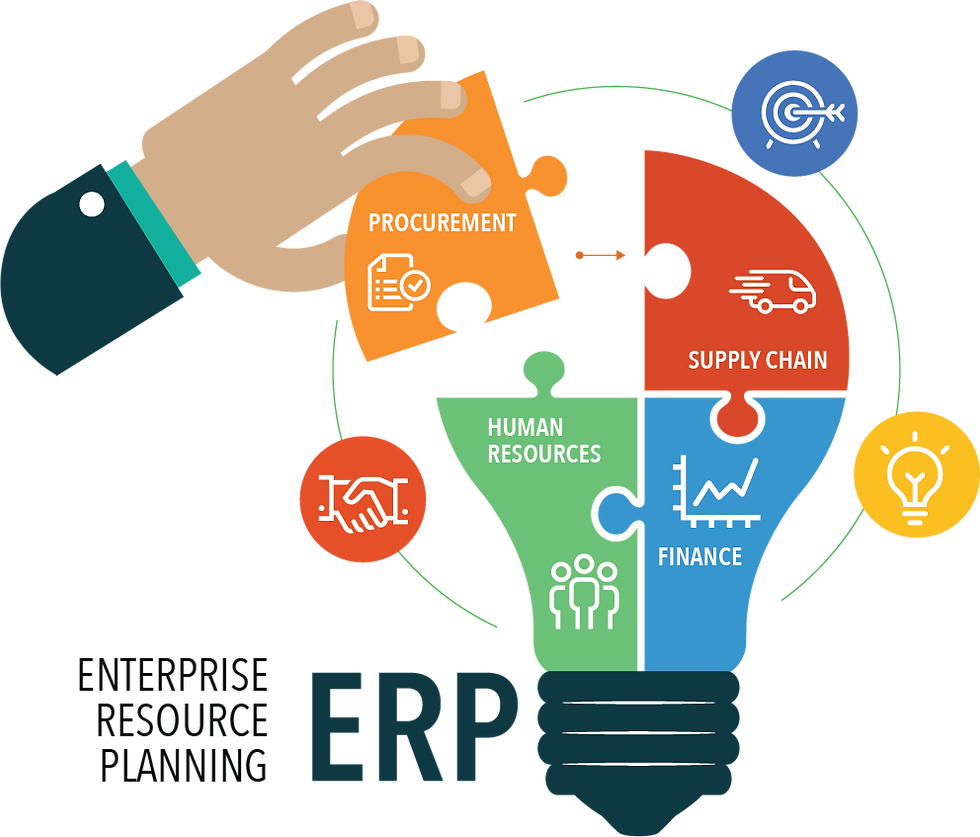The Key to Organizational Efficiency: Payroll Management Systems
- solutionscakiweb
- Nov 4, 2023
- 3 min read
Introduction
Managing payroll is a critical aspect of running any organization, and in this digital age, Payroll Management Systems (PMS) have become an essential tool for companies of all sizes. In this blog, we will delve into the world of Payroll Management Systems, exploring their benefits, features, and why they are crucial for businesses today.
The Evolution of Payroll Management
Historically, payroll management involved a tedious and time-consuming process that was prone to errors. HR departments had to handle mountains of paperwork, calculate taxes, and deal with compliance issues. The advent of technology has revolutionized this process, making it more efficient, accurate, and user-friendly.

What is a Payroll Management System?
A Payroll Management System is a software solution designed to automate and streamline the payroll process. It handles tasks such as salary calculations, tax deductions, direct deposits, and compliance with labor laws. PMS can be customized to fit the unique needs of an organization, making it an indispensable tool for businesses of all sizes.
Key Features of a Payroll Management System
a. Employee Data Management: PMS stores and manages employee data, from personal information to salary details. This central repository ensures data accuracy and accessibility.
b. Salary Calculations: PMS automates the process of calculating salaries, factoring in variables like overtime, bonuses, and deductions. This significantly reduces the risk of errors.
c. Tax Compliance: Staying compliant with tax regulations is a crucial part of payroll management. PMS calculates taxes, prepares tax forms, and helps businesses stay up-to-date with changing tax laws.
d. Direct Deposits: PMS facilitates direct deposits into employee bank accounts, eliminating the need for physical paychecks.
e. Time and Attendance Management: Many PMSs include time and attendance tracking, simplifying the process of calculating work hours and overtime.
f. Reporting and Analytics: PMS provides robust reporting capabilities, enabling businesses to gain insights into their payroll data.
Benefits of Implementing a Payroll Management System
Time and Cost Efficiency: PMS significantly reduces the time and resources spent on payroll processing. This allows HR personnel to focus on more strategic tasks.
Accuracy and Compliance: Automation minimizes the risk of errors in payroll processing and ensures that the organization remains compliant with labor laws and tax regulations.
Data Security: PMSs offer secure storage and backup for sensitive employee information, protecting against data breaches.
Employee Self-Service: Many PMSs include self-service portals, empowering employees to access their payroll information, tax documents, and more.
Enhanced Reporting: PMSs generate insightful reports that can inform decision-making and help identify cost-saving opportunities.
Scalability: As your organization grows, a robust PMS can easily scale to accommodate more employees and more complex payroll needs.
Choosing the Right Payroll Management System
Selecting the right PMS for your organization is crucial. Consider factors like the size of your business, budget constraints, and specific payroll requirements. Additionally, look for a system with good customer support and regular updates to stay current with changing laws and technology trends.
Implementation and Training
Once you've chosen a PMS, it's essential to ensure a smooth implementation process. This may involve data migration, training for HR personnel, and thorough testing to guarantee accurate payroll processing.
The Future of Payroll Management Systems
The future of PMS is likely to include even more automation, artificial intelligence, and machine learning. These technologies will further streamline payroll processing, improve data analytics, and enhance the overall payroll experience for both HR teams and employees.
Conclusion
Payroll Management Systems have come a long way from the days of manual data entry and complex calculations. In today's fast-paced business environment, they are an essential tool for organizations looking to streamline their payroll processes, enhance accuracy, and ensure compliance with ever-changing regulations. By investing in a high-quality PMS, businesses can free up their HR teams to focus on more strategic tasks and, in turn, achieve greater efficiency and productivity. The future of PMS is bright, with continued advancements in technology promising even more benefits for businesses of all sizes. Don't let payroll management slow you down; embrace the power of a Payroll Management System and unlock the full potential of your organization.



Comments